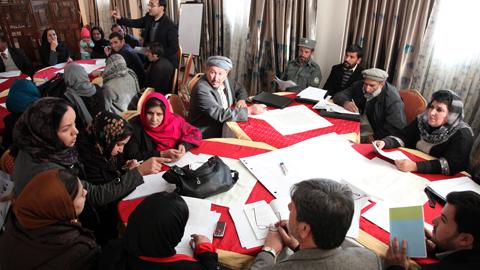KABUL - Despite provisions in the Afghan constitution for protection of women’s rights and the law on the Elimination of Violence against Women (EVAW), and Afghan civil laws, 54 percent of women in Afghanistan are affected by forced and underage marriage, according to Afghan legal practitioners.
This was announced at the conclusion of a 3-day seminar for legal practitioners attended by over 80 representatives from the Judiciary, Attorney General’s Office, Ministry of Interior, Prosecutors, human rights and civil society organizations. The seminar was held under the auspices of the Human Rights Unit of United Nations Assistance Mission in Afghanistan from 18 to 20 December 2011 in Kabul.
Legal practitioners assessed the legal, religious and customary aspects of forced and underage marriage and developed recommendations for the Afghan Government, Police and Judicial institutions, and the international community for a better implementation of the EVAW law.
The participants emphasized the need for creating awareness in Afghan society and in relevant government institutions to prevent and reduce cases of forced and underage marriage, as well as to commit authorities to enforce the law.
Participants endorsed that underage marriages have severe negative impact on the health of the victims, hence religious scholars should play their role in awareness building among the general population.
As Islam does not allow forced and underage marriage, participants called upon Ulema (religious scholars) to provide contemporary religious teaching, so to people understand the importance of seeking consent for an engagement.
The seminar participants unanimously agreed that customary laws have not only been at the origin of forced and underage marriage, but also exacerbated the situation. But the Afghan legal system should prevail in the current law enforcement. In remote areas, where a formal justice system does not exist, cases of forced and underage marriage should be resolved in coordination with the formal legal system.
By UNAMA/Kabul






